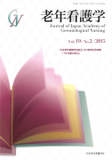Japanese
English
- 販売していません
- Abstract 文献概要
- 参考文献 Reference
抄録
本研究の目的は,要介護高齢者の社会貢献の対象と目的,要介護高齢者の強み,自己評価から要介護高齢者の社会貢献の特徴を導くことである.要介護高齢者9人に,半構造化した面接調査を行い,調査内容ごとの分析を行った.社会貢献の対象は,家族,サービス利用仲間やサービス提供者,地域住民を含んでいた.その目的は,【喜び・悲しみの分かち合い】【できることをやって共存】【安泰祈願】【健康支援】【ねぎらい】【価値や習わしの伝授】【地域の活性化】であった.要介護高齢者の強みは,【伝わる工夫】【代替の導入】【関係づくりへの配慮】【学びの継続】【老いと障害への適応】【価値の伝承】【老いがもたらす恩恵】【人とものとの調和】【夢への挑戦】であった.社会貢献の課題は,【家族の将来への危惧】【要介護高齢者の活動制限】【ノーマライゼーションの未成熟】【地域の価値や景観保全の危機】であった.
要介護高齢者の社会貢献の特徴は,地域文化を継承するという老いがもたらす役割と,要介護状態であるという当事者性を生かすことが期待できると考えた.
This study aimed to reveal the characteristics of social contribution activities among elderly individuals in need of long-term nursing care by investigating the targets, objectives, and self-assessments of the contributions. Semi-structured interviews were conducted with 9 elderly individuals in need of long-term nursing care, and the data were analyzed by evaluation item. The targets of social contribution activities included immediate families, fellow nursing care recipients and providers, and community residents. The objectives of social activities were to share their joy and sadness, coexist by accomplishing what they can, pray for peace and safety, promote health, appreciate each other, teach values and tradition, and revitalize their community. The strengths of elderly individuals in long-term nursing care were inherited ingenuity, incorporation of alternatives, attention to building relationships, continuous learning, adaptation to aging and disabilities, dissemination of values, benefits of aging, harmony between people and objects, and dreams of taking up challenges. The problems associated with social activities were fear for the future of their family, activity restrictions, immature normalization, and threats to community values and to the conservation of scenery. Taken together, this study revealed that the characteristics of social contribution activities among elderly individuals in need of long-term nursing care are the knowledge and skills that they have acquired throughout their long lives as well as their experience with nursing systems.
Copyright © 2015, Japan Academy of Gerontological Nursing All rights reserved.


